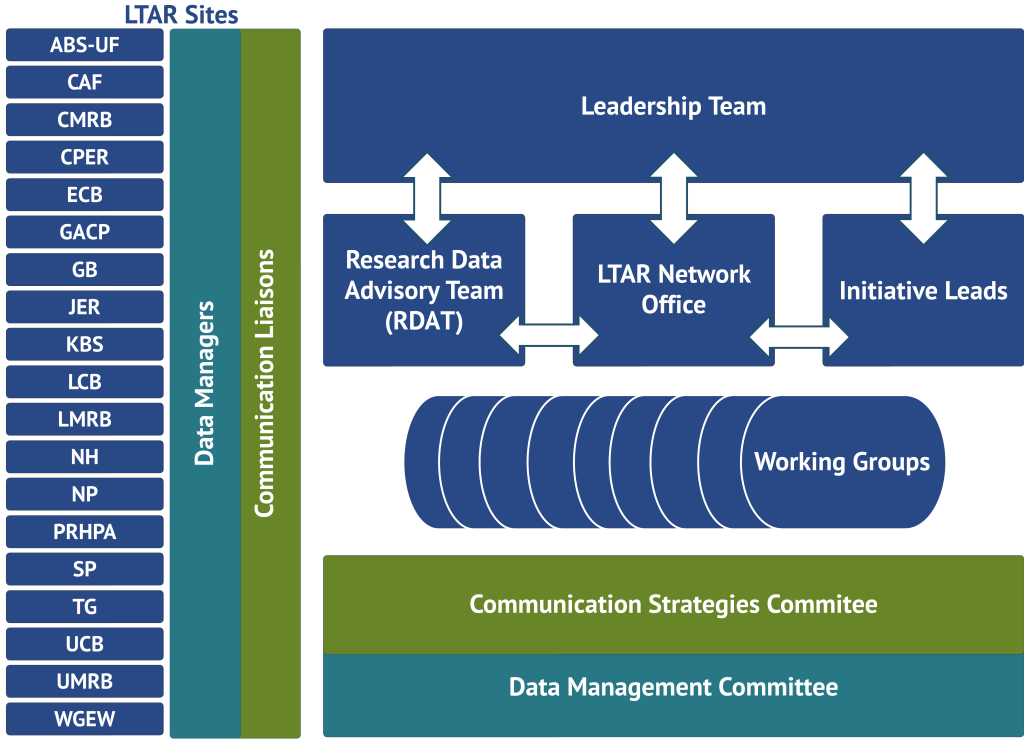Network Organization
LTAR Network Office
Network Coordinator – Alycia Bean
LTAR Network Leadership Groups
Leadership Team
Research Data Advisory Team
Initiative Leads
Working Group Leads
The Leadership Team consists of 19 site leads and the Executive Committee, and guides network vision and programmatic leadership. The Executive Committee consists of the National Program Leader for LTAR (Teferi Tsegaye) and 9 elected members from the LTAR community who each serve 3-year commitments. The Executive Committee is responsible for leading the network through governance, reviewing the annual reports, addressing sensitive matters, and making decisions for the network.
Each LTAR site conducts coordinated research activities including collection of core measurements, execution of a long-term common experiment, stakeholder engagement, participation in multi-site working groups, and publication of datasets. Each site has a site lead, data manager, and a communication liaison. These data and communication representatives from each site make up the network-wide committees for Data Management and Communication Strategies.
Research Data Advisory Team develops the data information system for the network and guides the data management working flow. Working groups consisting of scientists from LTAR sites and partnering universities and organizations conduct multi-site research on various topics ranging from hydrology, biodiversity, soil, stakeholder engagement, and social science. The initiative leads and working group leads set achievable goals and objectives for the year and ensure that the network is implementing the Strategic Plan.
The Network Office currently consists of an LTAR Admin and an LTAR Coordinator. The LTAR Admin assists with scheduling, organizing and recording meetings, and maintaining records. The LTAR Coordinator serves as a communication conduit between the Leadership Team, RDAT, working groups, initiative leads, and LTAR sites, and coordinates collaborative research across the network. The Coordinator is also a point person for the new LTAR members and network-level stakeholders.
ABOUT LTAR
The USDA Agricultural Research Service (ARS) Long-Term Agroecosystem Research network consists of 18 Federal and university agricultural research sites with an average of over 50 years of history. The goal of this research network is to ensure sustained crop and livestock production and ecosystem services from agroecosystems, and to forecast and verify the effects of environmental trends, public policies, and emerging technologies.

